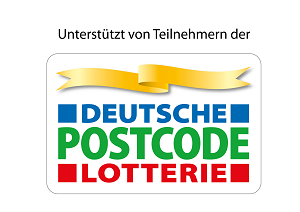Pesticides, BPA cost Dutch society €6 billion in annual health bills
This is according to calculations by leading scientists, including WECF Expert Committee Member Professor Legler, for the research program Zembla
10.06.2015 |

Exposure to hormone disrupting substances, which can be found in everyday products such as pesticides, plastic packaging, BPA or canned goods, annually costs Dutch society 5.8 billion euros.
This is according to calculations by leading scientists for the research program Zembla. According to the scientists, these substances are very risky for unborn babies and young children as it could do permanent damage to their development and lead to fertility problems, testicular cancer, breast cancer and obesity in later life.
The program Zembla, who interviewed WECF expert committee member Professor Legler for the documentary, will be broadcasted June 10 on Netherlands 2, and will be available as off June 11 online www.zembla.vara.nl
Led by the American pediatrician L. Trasande, international scientists and physicians studied what part hormone disrupting substances have in causing diseases. Trasande concluded that in the Netherlands per year there are 280 extra cases of testicular cancer from exposure to flame retardants, he attributed 7 thousand deaths of men aged 55 to 64 years to plasticizers and 1,500 cases of obesity in children associated with exposure to BPA. The scientists estimated the cost to society based on this data, but expect that the healthcare costs are much higher. “We looked at less than 5 percent of these chemicals. So it’s a low estimate”, Trasande said.
M. van den Berg, professor of toxicology at the University of Utrecht, did a separate study in which he calculates what flame retardants and certain pesticides cost Dutch society. He used a different calculation method and came to similar conclusions “We really are talking about hundreds of millions to billions in damage.”
According to Zembla, Minister Edith Schippers of Public Health said in a written response that Van den Berg’s research is interesting and relevant, but “given all the uncertainties surrounding the extent to which substances may or may not be harmful, it is still to early to draw concrete conclusions”.
Related News
WECF co-organising partner Green Pharmacy Conference 2017
The environmental cycle of medicines - an incentive for innovation in the human and veterinary medicine chain
21.09.2017
Recycling contaminates plastic children’s toys with toxic chemicals from electronic waste
A new global survey finds that recycling plastics containing toxic flame retardant chemicals found in electronic waste results in contamination of the world’s best-selling toy: The Rubik’s Cube.
20.04.2017
One step towards a safer blood bag
WECF speaker at final Seminar of the LIFE+ project PVC Free Blood Bag, 27-28 September, in Östersund, Sweden
11.10.2016
WECF sends letter to Dutch Secretary of State concerning EU policy on EDCs
In a joint statement WECF and the EDC Free Coalition ask Dutch State Secretary Dijksma to insist on major changes at the Environmental Council meeting to protect our health and environment.
21.06.2016
Commission's EDC criteria proposal: More humans will have to be harmed before action is taken
The European Commission presented today its proposal for criteria to identify endocrine disrupting chemicals (EDCs). WECF and the EDCfree Coalition condemn strongly the decision.
15.06.2016




































